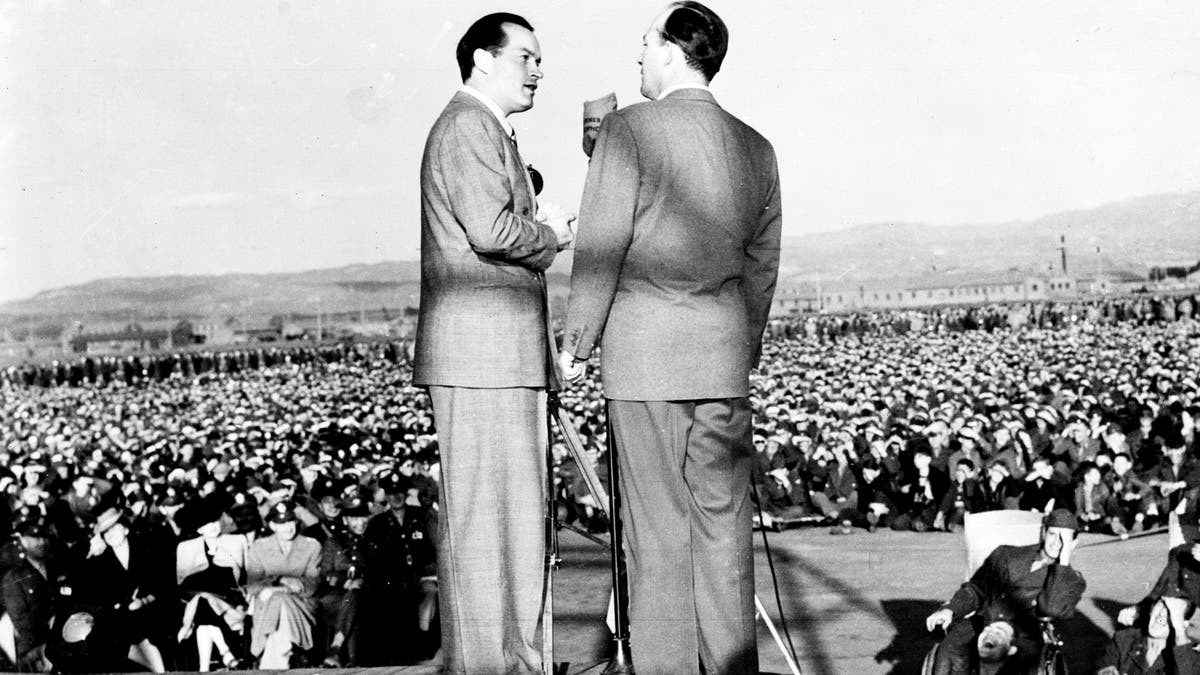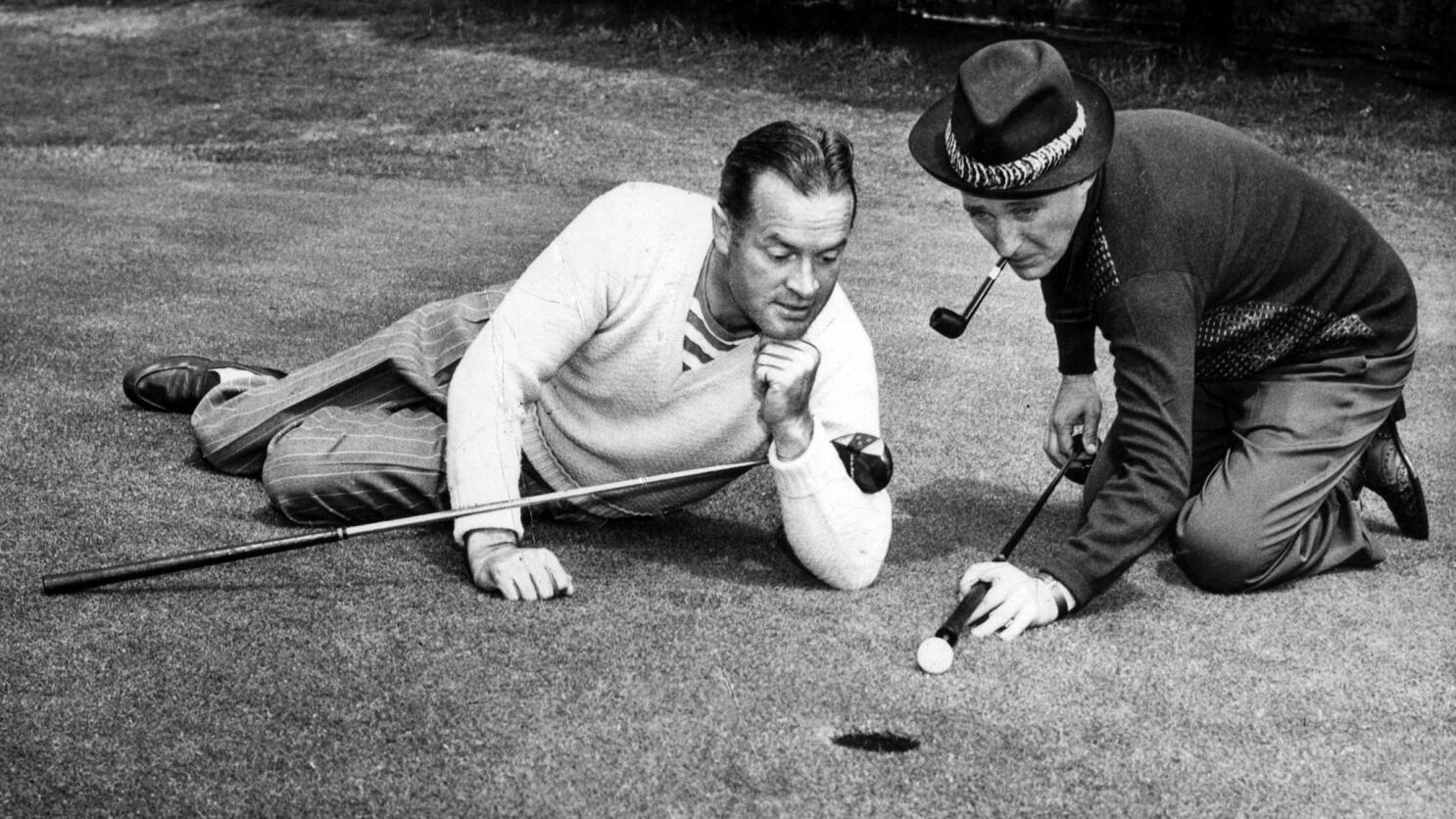For decades, Bing Crosby and Bob Hope were celebrated as Hollywood’s golden duo — inseparable partners in comedy, charm, and charisma. Their Road to… movies defined an era, their chemistry unmatched, their banter effortless. But now, new revelations have shattered that glossy illusion, uncovering a deep and bitter rivalry that lay festering behind their carefully choreographed smiles.

It all began to unravel after a single cutting remark — the one that stunned Hollywood insiders. During a lavish Friars Club tribute to Bob Hope, nearly every major star turned out to honor the comedian’s legacy… except Bing Crosby. When asked why he hadn’t attended, Crosby reportedly shrugged and replied coldly:
“I wasn’t hungry.”
That flippant answer wasn’t a joke — it was a window into decades of resentment and disdain.
Archival letters and insider interviews reveal that the tension between the two legends was far deeper than the playful ribbing audiences saw on screen. The root of the animosity lay in ego, competition, and conflicting worldviews. Crosby, the cool crooner with the velvet voice, saw himself as a refined artist. Hope, the quick-witted showman, saw himself as the ultimate entertainer. Their dynamic worked on camera — but off-camera, it was a constant battle for dominance.

Financial disparity added fuel to the fire. Despite sharing equal billing, Crosby was often paid double Hope’s salary, a fact that infuriated Hope but that Crosby refused to address. “Bob wanted to be friends,” one studio insider recalled, “but Bing treated him like an employee.” Crosby’s preference for solitude and quiet dinners contrasted sharply with Hope’s need for camaraderie and attention — a divide that grew with every film they made together.
Behind closed doors, their exchanges turned cutting. Hope allegedly referred to Crosby as a “snob with a golf club,” while Crosby privately dismissed Hope as a “talentless hack with a loud mouth.” By the 1950s, the pair’s relationship had become purely transactional — smiles for the cameras, ice in private.

And yet, their partnership endured, held together by box office gold and studio contracts. Ironically, their rivalry only heightened their performances, infusing their on-screen banter with a bite that audiences mistook for wit.
In later years, as Crosby’s personal life unraveled — marked by strained family relationships and the tragic deaths of two of his sons — Hope reportedly tried to reach out. But Crosby, proud and distant to the end, never responded.

When Crosby died in 1977, Hope attended the funeral — quietly, respectfully, but without emotion. “We made people laugh,” he once said later, “but we never really laughed together.”
Now, decades later, the truth has come to light: Hollywood’s favorite friendship was a mirage — a show within a show. Behind the laughter was envy, silence, and two men who could never quite share the same spotlight.
Their story remains one of the industry’s greatest ironies — proof that in Hollywood, even friendship can be scripted, and sometimes, the biggest act of all happens off-screen.






